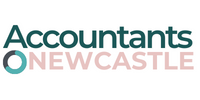Professional services accounting is crucial for managing finances for businesses that offer specialised services. From time tracking to financial reporting, key elements are essential for accurate and efficient accounting in this industry. With challenges like managing multiple projects and ensuring compliance with tax laws, professional services accounting can be complex. This article explores the importance of professional services accounting, the common challenges faced, and how specialised accounting software can help streamline processes. Get ready to dive into professional services accounting and discover how it can benefit your business.
What Is Professional Services Accounting?
Professional Services Accounting involves the specialised management of financial transactions and records for professional firms or individuals offering services.
Accounting in professional service industries goes beyond just the standard financial management – it is crucial in ensuring regulatory compliance, monitoring performance, and providing strategic insights for decision-making. Professional accountants are adept at leveraging industry-specific knowledge to tailor solutions that align with service-oriented businesses’ unique needs and challenges. By understanding the intricacies of revenue recognition, managing billable hours, and optimising cash flow, accounting professionals contribute significantly to their clients’ success and sustainable growth.
Why Is Professional Services Accounting Important?
Professional Services Accounting plays a crucial role in ensuring professional firms’ financial success and sustainability by providing accurate financial insights and compliance adherence.
Implementing accurate accounting practices is essential for professionals to make informed business decisions, manage cash flow effectively, and maximise profitability. By meticulously tracking expenses, revenues, and investments, professionals can assess the financial health of their operations and strategies for future growth. Maintaining precise records and reports allows for transparency and accountability, crucial aspects for gaining the trust of clients and stakeholders. A solid foundation in accounting essentials gives professionals the power to navigate complex financial landscapes and establish a strong foothold in their industry.
What Are the Essential Elements of Professional Services Accounting?
The essential elements of Professional Services Accounting encompass meticulous time tracking, precise financial reporting, and comprehensive invoicing and billing processes to maintain high-quality standards.
Time Tracking
Effective time tracking in Professional Services Accounting is essential for accurately capturing billable hours and assessing resource allocation.
Time-tracking tools such as QuickBooks play a crucial role in this process by automating the tracking of time spent on client projects and tasks. These tools allow professionals to easily record their billable hours, create detailed timesheets, and generate invoices quickly and efficiently. The data collected through these tools ensures accurate client billing and helps businesses evaluate project profitability and improve overall operational efficiency. The integration of time-tracking software with accounting systems streamlines the process further, reducing errors and saving valuable time for accountants and business owners.
Project Management
Project Management in Professional Services Accounting involves overseeing project timelines, budgets, and deliverables to ensure efficient operations and client satisfaction.
One of the crucial aspects of utilising project management tools like Xero in this realm is their ability to streamline communication and collaboration among team members by centralising project information. By offering real-time updates on project progress, Xero enhances accountability and transparency, fostering a culture of constant improvement and innovation within the accounting firm. These tools are pivotal in ensuring accurate budgeting through detailed financial tracking and forecasting, helping businesses allocate resources effectively and minimise financial risks.
Invoicing and Billing
Invoicing and billing processes in Professional Services Accounting are vital for timely revenue recognition, client billing accuracy, and financial transparency.
Implementing an efficient invoicing and billing platform like FreshBooks can significantly streamline these critical tasks. By automating invoice generation, tracking billable hours, and managing expenses, professionals can save time and ensure prompt payments from clients. These tools offer detailed reporting functionalities, providing insights into cash flow, outstanding payments, and overall financial health.
Expense Tracking
Accurate expense tracking is critical to Professional Services Accounting, ensuring proper cost allocation, budget adherence, and financial integrity.
Utilising expense tracking tools like PayPal plays a vital role in streamlining the accounting processes for professional services providers. These tools not only help in recording expenses accurately but also facilitate efficient cost management and budget control. By leveraging such technology, companies can easily track their expenditure, allocate costs appropriately, and ensure financial compliance with regulations and standards.
Financial Reporting
Comprehensive financial reporting is essential in Professional Services Accounting to provide insights into business performance, compliance with standards like GAAP, and well-considered choices.
Effective financial reporting practices offer a snapshot of a company’s financial health and serve as a vital tool for internal and external stakeholders to make well-informed decisions. Professional service firms can bolster their credibility and build trust with investors, creditors, and regulators by adhering to standardised accounting principles and maintaining transparent financial records. Accurate financial reporting ensures compliance with legal requirements and enhances strategic planning by identifying areas of growth, potential risks, and cost-saving opportunities.
What Are the Common Challenges in Professional Services Accounting?
Managing Multiple Projects and Clients
Efficiently managing multiple projects and clients in Professional Services Accounting requires robust tools like Intuit to streamline workflows, track deliverables, and optimise resource allocation.
One of the key challenges in professional services accounting is the sheer volume and complexity of projects and clients that need to be managed simultaneously. With each project’s unique requirements, deadlines, and stakeholders, keeping everything organised can quickly become overwhelming.
Integrating a comprehensive software solution like Intuit can be a game-changer. It offers features such as project tracking, time management, and client management in one platform, providing a centralised hub for monitoring progress and allocating resources efficiently.
Ensuring Accuracy in Time Tracking and Billing
Maintaining accuracy in time tracking and billing processes is vital in Professional Services Accounting to avoid revenue leakage, billing disputes, and client dissatisfaction.
Ensuring precise time tracking and billing not only safeguards the financial health of a professional services firm but also fosters trust and credibility with clients. By diligently recording all billable hours and accurately invoicing clients, firms can optimise revenue streams and maintain transparency in their financial operations.
- CPD is crucial in honing professionals’ skills and knowledge in time-tracking software, accounting regulations, and ethical billing practices.
- Through continuous learning and skill enhancement, professionals can reduce errors in time tracking and billing, enhancing accounting processes’ overall efficiency and accuracy.
Dealing with Complex Invoicing and Billing Processes
Navigating complex invoicing and billing processes in Professional Services Accounting requires attention to detail, automation tools, and adherence to industry standards like those in New England.
One of the main challenges faced in professional services accounting is the intricate nature of client billing, which involves tracking multiple billable hours, expenses, and rates for various services rendered. The complexity further intensifies with the need to comply with regulatory requirements that vary depending on the region and type of service.
Ensuring accuracy in invoicing and billing is crucial to maintaining financial health and client trust. Invoice Errors can lead to payment delays, disputes, or even non-compliance issues. Therefore, automating these processes with specialised software is essential to streamline operations and reduce manual errors.
Ensuring Compliance with Tax Laws and Regulations
Adhering to tax laws and regulations is paramount in Professional Services Accounting to avoid penalties, audits, and reputational risks, necessitating adherence to standards set by organisations like PASBA.
Maintaining regulatory compliance is the bedrock of ethical practice and financial stability in the dynamic landscape of professional services accounting. Ensuring tax law adherence safeguards the firm’s reputation and builds trust with clients and stakeholders. Accounting professionals may inadvertently expose their clients to unnecessary risks without a solid understanding of industry standards and legal requirements. Upholding the guidelines established by reputable organisations like PASBA is a proactive approach to navigating complex tax environments and upholding the integrity of financial reporting.
How Can Professional Services Accounting Software Help?
Professional Services Accounting software offers automation for time tracking, project management, compliance, and integration with business tools like Stripe, enhancing efficiency and accuracy.
Automating Time Tracking and Invoicing
Automating time tracking and invoicing processes through Professional Services Accounting software like Square reduces manual errors, accelerates billing cycles, and improves client communication.
Professional service accountants can streamline their operations efficiently by utilising automation for time tracking and invoicing. The software eliminates the need for manual data entry, decreasing the chances of human errors that often plague traditional methods. This saves time and ensures accurate invoicing, leading to quicker payment processing.
- Automated invoicing helps maintain a consistent billing schedule, enhancing overall billing efficiency. Accountants can set up recurring invoices, send reminders, and track payments effortlessly, resulting in improved cash flow management.
- Client satisfaction is another major benefit of automated time tracking and invoicing. With accurate records and timely billing, clients receive a transparent view of services rendered, promoting trust and loyalty in the professional relationship.
Streamlining Project Management and Financial Reporting
Professional Services Accounting software aids in streamlining project management tasks and generating accurate financial reports, including profit and loss statements, for well-considered choices by professionals.
Professional services accounting software enables project managers to allocate resources efficiently and monitor project budgets in real-time by automating time tracking, expense management, and invoicing processes. With robust reporting features, users can easily track project profitability, identify areas for improvement, and make data-driven decisions. The seamless integration of financial data with project management tools ensures that accurate and timely financial reports are generated, providing valuable insights into the financial health of projects and the overall business performance.
Ensuring Compliance and Accuracy
Professional Services Accounting software is key in ensuring compliance with regulations, maintaining accurate financial records, and generating detailed cash flow statements for better financial insights.
Professional services accounting software simplifies complex tasks such as revenue recognition and expense tracking by streamlining processes and automating calculations. This software reduces human error and provides real-time data for well-considered choices. With built-in audit trails and customisable reporting functionalities, it effortlessly facilitates internal and external audits. It aids in resource allocation optimisation, budgeting, and forecasting, giving businesses the power to manage financial risks proactively. Implementing such software elevates transparency and efficiency in professional services accounting operations.
Integrating with Other Business Tools
Professional Services Accounting software integrates seamlessly with various business tools, facilitating tasks such as bank reconciliation and financial data synchronisation for holistic financial management.
This integrated approach allows professionals to consolidate financial data from different sources into one centralised system, reducing the risk of errors and improving accuracy in reporting.
By automating repetitive tasks like invoice generation and expense tracking, professionals can save valuable time and focus on more strategic aspects of their business.
Integrating accounting software with customer relationship management (CRM) tools enables seamless communication between finance and sales teams, fostering collaboration and improving customer service.
FAQs about Professional Services Accounting
Q: How does professional services accounting differ from accounting in other industries?
Professional services accounting distinguishes itself from general accounting by focusing on specialised income statement analysis, industry-specific regulations, and client-centric financial management practices.
When looking into income statement analysis within professional services accounting, experts meticulously examine revenue streams, expenses, and overall profitability to provide detailed insights for decision-making. Regarding regulatory compliance, accounting professionals must stay abreast of specific industry regulations and standards to ensure legal adherence and risk mitigation.
One key aspect that sets professional services accounting apart is the emphasis on creating bespoke financial strategies tailored to meet each client’s unique needs and goals. By understanding different industries’ nuances and financial demands, these professionals offer personalised guidance and solutions rather than adopting a one-size-fits-all approach.
Q: What types of businesses fall under the professional services category, and why is specialised accounting necessary for them?
Businesses offering consultancy, legal, or medical services typically fall under professional services, requiring specialised accounting practices to manage complex financial transactions, balance sheet entries, and regulatory compliance.
Operating within professional services, companies in this category often require tailored accounting solutions to ensure smooth financial operations. With the intricate nature of their balance sheets and the need to adhere to industry-specific regulations, these businesses rely on accountants familiar with their unique nuances.
Q: How does time tracking contribute to the accuracy of financial reporting in professional services accounting?
Accurate time tracking enhances the precision of financial reporting in professional services accounting by ensuring detailed insights into project costs, profitability metrics, and revenue streams for generating accurate profit and loss statements.
Time tracking is crucial in helping accounting professionals analyse costs associated with different projects, aiding in better resource allocation and budgeting decision-making. By accurately capturing the time spent on various tasks, organisations can calculate the true cost of each project and make informed pricing decisions. Precise time tracking enables businesses to evaluate the efficiency of their operations, identify potential areas for improvement, and optimise revenue generation strategies.
Q: Can professional services accounting software accommodate different billing structures, such as hourly rates, fixed fees, or project-based billing?
Professional services accounting software offers flexibility to handle diverse billing structures, including hourly rates, fixed fees, and project-based billing, ensuring accurate cash flow management and streamlined financial operations.
With the capability to adapt to various billing models, professional services accounting software can effectively manage invoicing processes based on different fee structures. Whether charging clients by the hour, setting fixed fees for specific services, or utilising project-based billing, the software streamlines the billing cycle, leading to improved cash flow management and enhanced financial efficiency. This software plays a crucial role in ensuring financial accuracy and transparency within service-based businesses by automating the invoicing process and providing detailed cash flow statements.
Q: What are the key considerations for choosing professional services accounting software for a specific business?
Selecting professional services accounting software involves evaluating factors like bank reconciliation capabilities, software features, scalability options, and customisation to align with a business’s specific financial needs and operational requirements.
Bank reconciliation is crucial to ensuring that the software can seamlessly match and reconcile financial data with bank statements. The feature sets of the accounting software should cover a wide range of functions, from invoicing to expense tracking, ensuring comprehensive financial management. Scalability is essential for accommodating business growth and adapting to changing needs. Customizing the software to fit unique business processes and reporting requirements can significantly enhance efficiency and accuracy.





